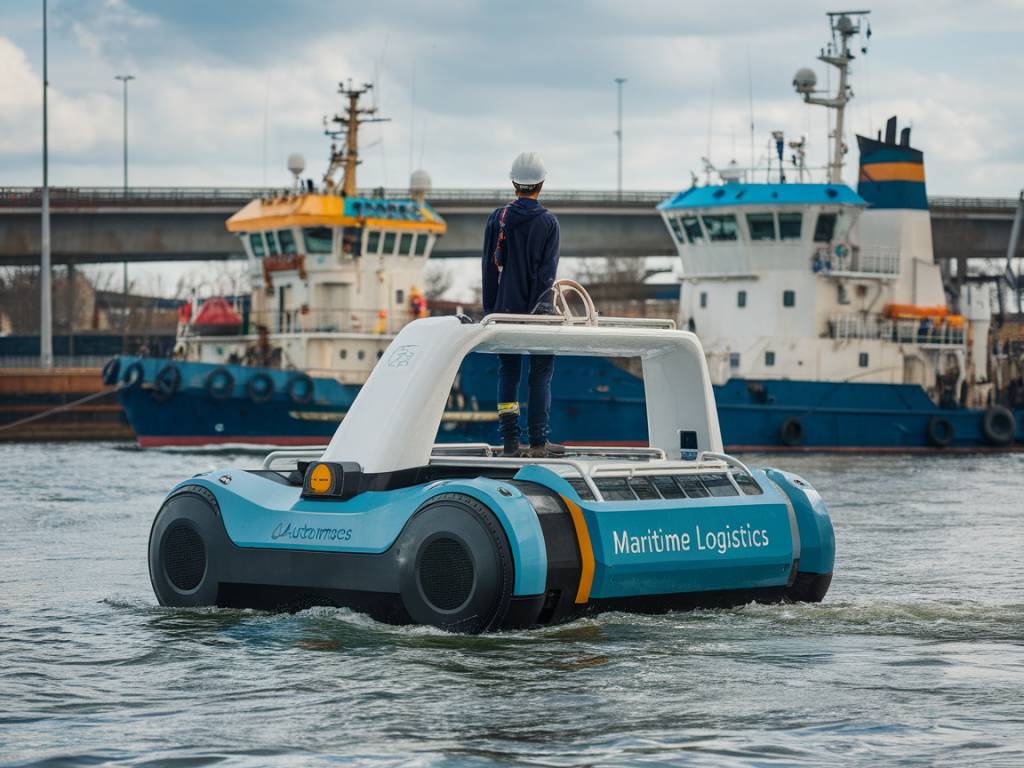The Importance of Autonomous Ships in Maritime Logistics
Maritime logistics has always been a critical backbone of global trade. With the advent of autonomous ships, the industry is poised for a remarkable transformation. The integration of advanced technologies in sea transportation promises increased efficiency, reduced costs, and enhanced safety. This article delves into the rise of autonomous ships in maritime logistics, examining their benefits, challenges, and the impact on global trade.
What Are Autonomous Ships?
Autonomous ships, also known as unmanned ships or smart ships, are vessels that operate with varying levels of human intervention. These ships leverage cutting-edge technologies, such as artificial intelligence (AI), machine learning, and sophisticated sensors, to navigate and perform tasks independently. Depending on the degree of autonomy, these ships can be categorized as:
- Fully autonomous ships: These vessels operate without any human crew on board, relying entirely on advanced systems for navigation and operations.
- Semi-autonomous ships: These ships have some level of human oversight, either remotely or through a limited crew on board, but primary navigation and operational tasks are handled by automated systems.
Advantages of Autonomous Ships
The shift towards autonomous vessels offers several benefits that can revolutionize maritime logistics:
- Increased Efficiency: Autonomous ships can operate continuously without the need for crew rest periods, leading to faster turnaround times and optimized routes. AI-driven algorithms can analyze vast amounts of data to determine the most efficient paths, reducing fuel consumption and operational costs.
- Enhanced Safety: Human error is a significant factor in maritime accidents. Autonomous ships minimize this risk by using advanced sensors and real-time data analysis to make precise decisions, thereby improving overall safety. Furthermore, in hazardous environments, deploying unmanned vessels can prevent potential harm to human lives.
- Cost Reduction: Labor costs associated with manned ships can be substantially reduced with autonomous vessels. Additionally, maintenance costs can be lowered due to the predictive maintenance capabilities enabled by continuous monitoring and diagnostic systems.
- Environmental Impact: Autonomous ships are designed to optimize fuel usage and reduce emissions, contributing to greener maritime logistics. They can also be equipped with eco-friendly technologies, such as renewable energy sources, to further reduce their environmental footprint.
Challenges in Implementing Autonomous Ships
While the benefits of autonomous ships are considerable, there are several challenges that need to be addressed:
- Regulatory and Legal Framework: The existing maritime regulations were established with manned vessels in mind. The introduction of autonomous ships necessitates the development of new regulatory frameworks to address issues such as liability, insurance, and ship certification.
- Technological Hurdles: Despite advances in AI and sensor technology, achieving full autonomy in complex and unpredictable maritime environments is still a significant technological challenge. Robust systems need to be developed to handle adverse weather conditions, navigational obstacles, and potential cyber threats.
- Economic Viability: The initial investment required for developing and deploying autonomous ships is substantial. Shipowners and operators need to evaluate whether the long-term benefits justify the upfront costs.
- Human Factor: The transition to autonomous ships will inevitably impact maritime workforce. Job displacement and the need for skill upgrading in new technology domains are critical factors that need to be managed carefully.
Impact on Global Trade
The rise of autonomous ships has far-reaching implications for global trade. Here’s how these high-tech vessels can transform international logistics:
- Streamlined Supply Chains: Autonomous ships can reduce transit times between ports, leading to more predictable and efficient supply chains. This can result in lower inventory holding costs and faster response times for businesses.
- Cost Savings Passed to Consumers: Reduced operational costs and increased efficiency can translate to lower shipping expenses, benefiting end consumers with reduced product prices.
- Enhanced Connectivity: Autonomous ships can facilitate trade with remote and less accessible regions, promoting global economic integration. This can create new opportunities for businesses in emerging markets.
- Real-Time Monitoring and Data Analytics: Autonomous ships equipped with IoT (Internet of Things) devices can provide real-time data on cargo conditions, route optimization, and vessel performance. This data can be leveraged to further improve logistics operations and decision-making processes.
Recent Developments and Case Studies
Several recent developments and pilot projects demonstrate the potential of autonomous ships:
- Yara Birkeland: The Yara Birkeland is one of the world’s first fully electric and autonomous container ships. Developed by the Norwegian company Yara International, this vessel aims to reduce emissions and provide a sustainable alternative for short-sea shipping.
- Rolls-Royce and Finferries: In collaboration with Finferries, Rolls-Royce successfully tested a fully autonomous ferry in Finland. The ferry, named Falco, completed a voyage without human intervention, showcasing the feasibility of autonomous passenger transport.
Future Prospects and Innovations
The future of autonomous ships looks promising, with several innovations on the horizon:
- Advanced AI and Machine Learning Algorithms: Continued advancements in AI and machine learning will enhance the decision-making capabilities of autonomous ships, making them more reliable and efficient.
- Integration with Smart Ports: The development of smart ports equipped with advanced IT and automation systems will complement autonomous ships, enabling seamless and efficient port operations.
- Hybrid and Renewable Energy Sources: The incorporation of hybrid propulsion systems and renewable energy sources, such as solar and wind power, will further reduce the environmental impact of autonomous shipping.
In summary, the rise of autonomous ships represents a significant leap forward in maritime logistics. With the potential to transform global trade, these innovative vessels promise to deliver enhanced efficiency, safety, and sustainability. As the technology continues to evolve and overcome current challenges, autonomous ships are set to play a pivotal role in shaping the future of maritime logistics.



